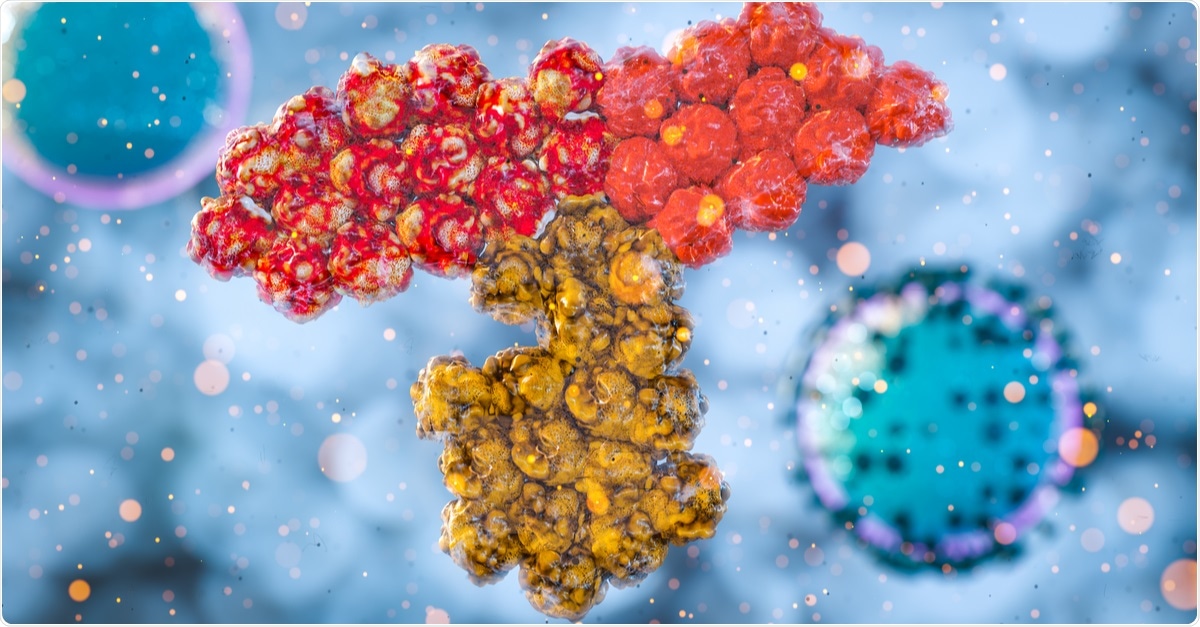A large amount of recent research has focused on the nature of immunity elicited by severe acute respiratory syndrome coronavirus 2 (SARS-CoV-2) infection, particularly its robustness and the duration of protection it affords. As a vaccine's efficacy relies on its ability to induce a robust immune response, these questions remain particularly pertinent as promising candidates enter the final phases of their clinical trials or await regulatory body approval for widescale distribution and use.
The best estimates so far are 4 to 6 months of humoral immunity following a bout of coronavirus disease 2019 (COVID-19). A study conducted by researchers based in Italy suggests that SARS-CoV-2 induces durable and strong immunity in patients who had moderate to severe illness.
SARS-CoV-2 causes the majority of infected individuals to develop mild or asymptomatic infections, while about 20% develop severe disease. Viral antigens stimulate a strong immune reaction, which may sometimes go into overdrive, and is suspected of contributing significantly to the pathogenesis of severe to critical stages of COVID-19.
The chief viral antigens considered to prompt an immune response include the nucleocapsid or N antigen and the spike or S antigen. The spike antigen gives the coronavirus its name, by forming a crown of spikes on the surface of the virus. It is responsible for mediating viral attachment to, and entry into, the target host cell, where it then replicates to cause active infection.

3D rendering of a SARS-CoV-2 antibody. Image Credit: CI Photos / Shutterstock

 *Important notice: medRxiv publishes preliminary scientific reports that are not peer-reviewed and, therefore, should not be regarded as conclusive, guide clinical practice/health-related behavior, or treated as established information.
*Important notice: medRxiv publishes preliminary scientific reports that are not peer-reviewed and, therefore, should not be regarded as conclusive, guide clinical practice/health-related behavior, or treated as established information.
The current study, which was published on the preprint server medRxiv* in November 2020, is a very small pilot study, conducted in a single center. It included 30 individuals who tested positive for the virus in the latter half of March, using reverse transcriptase-polymerase chain reaction (RT PCR). All were followed up by consecutive serum samples over a period of 8 months.
Five samples were collected, the first in May, which was two months after the initial virus positive test. The second sample was obtained one month later, and the rest three months, five months and six months after the first. These were designated T0, T1, T2, T3 and T4, respectively.
The researchers found that IgG antibodies were produced at high titer in around 77% of the group tested (23 out of 30), persisting at comparable levels at the final point in time. While 24 out of 30 were positive for IgG at the first time-point, 23 remained positive at the final test.
The changes in IgM titer were statistically significant in the mild-infection subset. The IgM titer never became positive throughout the study, persistently remaining below the cut-off that was set at 1. The mean IgM titer was 0.50 at the first test, went up to 0.6 before dropping to 0.36, and then to 0.2 at five months, where it remained at the last point of testing. Almost 87% of patients were IgM negative at the first sampling in May, 2 months following infection, and 90% at the last testing point, 8 months post-infection. Though the IgM titer peaked at 5 months from infection, it then declined over time.
The IgG titer trend similarly showed an initial median value of 1.8 in mild disease, remaining at this point at three months post-infection, but peaking at a median value of 3 at 7 and 8 months from infection. The researchers observe that this trend remained steady after first peaking at the T2 time point (5 months post-infection) and then went down. It remained well above the cut-off, although maintaining its linear trend throughout the rest of the study. However, the change in IgG did not attain statistical significance.
In moderate-severe disease, both IgM and IgG titers showed a significant change, though the former remained below the 1.0 CLIA cut-off throughout. The initial IgG titer in May, at 2 months post-infection, showed a median value of 2.4. The trend again peaked at the T2 testing point, 5 months post-infection, with a median value of 4, but was then found to decrease below the May value, being 2.25 at 7 months post-infection.
The IgG median value continued to wane, though remaining above the cut-off, to a median of around 1.9 at the last testing point, which was 8 months from the point when the patient first tested positive for SARS-CoV-2.
The researchers observe, “The results of this study highlight an important point in terms of the association between humoral immune response and disease severity. Patients who might have experienced a relatively moderate-severe infection may develop a robust immunity that could persist for a longer duration.”

 *Important notice: medRxiv publishes preliminary scientific reports that are not peer-reviewed and, therefore, should not be regarded as conclusive, guide clinical practice/health-related behavior, or treated as established information.
*Important notice: medRxiv publishes preliminary scientific reports that are not peer-reviewed and, therefore, should not be regarded as conclusive, guide clinical practice/health-related behavior, or treated as established information.